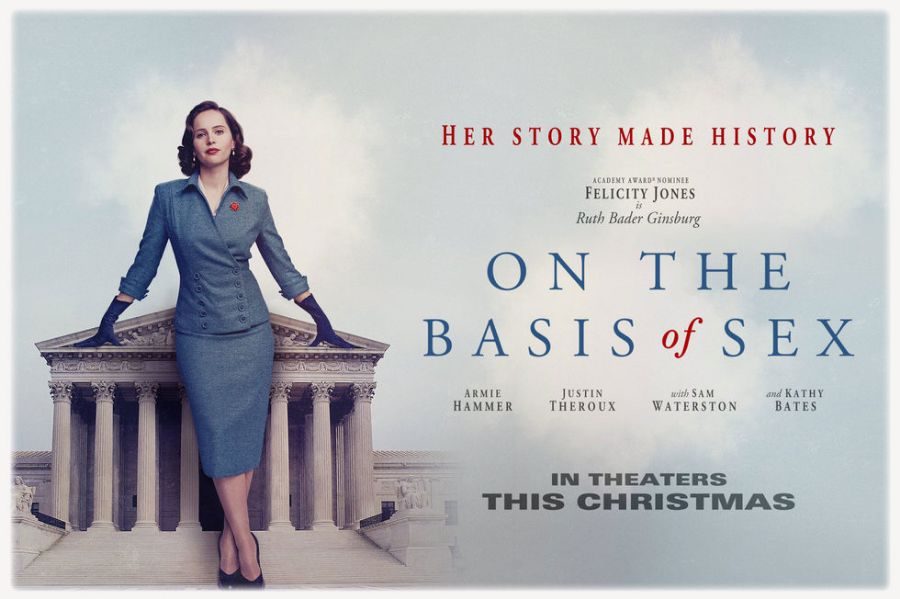Review: On the Basis of Sex
Photo credit: Imdb
January 23, 2019
“On the Basis of Sex” opened in the way any movie about female empowerment might: a hopeful and determined young woman marching towards her future as her heels click against the pavement.
That young woman was Supreme Court Justice and women’s rights advocate Ruth Bader Ginsburg (Felicity Jones). She was on her way to her welcoming ceremony at Harvard Law School in 1955. Ginsburg looked around, realizing she was one of nine women in her class, solidifying her isolation as a woman at Harvard Law.
This, among other incidences of thinly veiled and blatantly put gender discrimination, defined Ginsburg’s struggle throughout the movie. She is questioned, criticized and patronized during nearly every move she tries to make in the film, just as the real Ginsburg is in her own life and career.
The climax of the film appeared after her time at Harvard with the case of Moritz v. Commissioner of Internal Revenue. In the case, a man was denied tax provisions to support the costs of hiring an in-home nurse for his sick mother simply because he was unmarried. Ginsburg saw this opportunity to show how gender discrimination could impact men and took on the case alongside her husband, Marty (Armie Hammer), now a tax attorney, and the American Civil Liberties Union.
Here, the movie did the best job of making an entertaining story out of the life of an attorney. Despite the weight and symbolism behind this case, most would have been bored by the legal formalities of court proceedings themselves. To counter this, the movie picked up on the drama, and included a few typical tropes to keep viewers going. These ranged from “evil lawyers plot someone else’s demise in a dark room filled with cigar smoke” to “protagonist endearingly practices speech in front of a mirror before big events,” and showed us the magnitude of the variety of challenges she faced.
What Ginsburg did for women across America was give the persona of justice in a two hour film. Ginsburg’s work is ongoing, and it was a much better move to show the American people where the story of one of their role models began, which this movie did beautifully.












